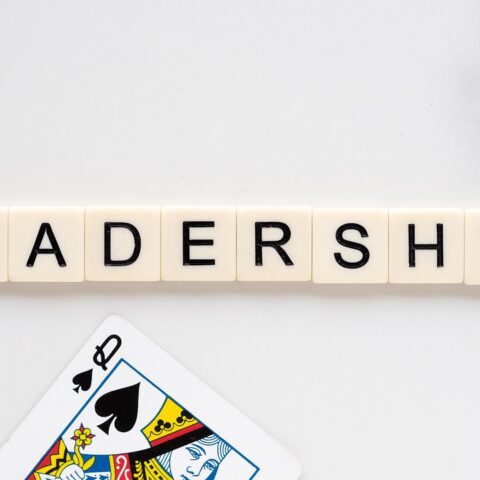What are the top 20 leadership skills? Leadership is a crucial element in any successful organization, and possessing the necessary skills to lead effectively can greatly impact not only the overall performance of a team or company but also its long-term success.
In today’s rapidly evolving business landscape, there is an increasing demand for leaders who can adapt and navigate through various challenges with finesse. But what exactly are these essential leadership skills? This article delves deep into the subject matter and presents you with an extensive list of the top 20 leadership skills (and some more!) that every aspiring or seasoned leader should be aware of.
From communication and strategic thinking to empathy and resilience, this comprehensive guide will equip you with invaluable insights on how to shine as a leader in any professional setting.
So whether you’re looking to enhance your own leadership abilities or develop a team of high-performing individuals, read on to uncover the key attributes needed for effective leadership in today’s complex world.

Communication and interpersonal skills
Effective communication is crucial for leaders
Leaders must possess strong communication and interpersonal leadership skills to effectively convey their vision, goals, and expectations to their team members. Clear and concise communication helps prevent misunderstandings, fosters collaboration, and promotes a positive work environment.
Good communicators actively listen to others, ask relevant questions, and provide constructive feedback.
Building relationships through effective interpersonal skills
Interpersonal skills play a key role in leadership as they help build strong relationships with team members. Leaders who are empathetic can understand the needs of their employees better, leading to increased trust and loyalty.
Active listening enables leaders to acknowledge the perspectives of others, resolve conflicts peacefully, and create an open atmosphere where everyone feels valued.
The benefits of honing these skills
By developing effective communication and interpersonal skills as a leader:
- You will be able to motivate your team more effectively.
- Your team members will feel comfortable approaching you with any concerns or ideas.
- Collaboration among team members will improve.
- You will be able to give clear instructions that prevent confusion or mistakes.
- Conflict resolution becomes easier when all parties feel heard and understood.
Having strong communication and interpersonal leadership skills is essential for leaders as it enhances productivity within teams while fostering positive relationships built on trust.

Emotional intelligence and empathy
Emotional intelligence, or EQ, is the ability to understand and manage one’s own emotions, as well as recognize and empathize with the emotions of others. Leaders with high emotional intelligence are able to regulate their feelings effectively, which allows them to remain calm under pressure and make better decisions.
Empathy is a key component of emotional intelligence that enables leaders to connect with their team members on a deeper level. By putting themselves in someone else’s shoes, leaders can gain insight into their needs and concerns, fostering trust and creating a supportive work environment.
Developing emotional intelligence and empathy can positively impact leadership effectiveness by improving communication skills, conflict resolution abilities, and overall relationship building within teams.
Being emotionally intelligent also helps leaders navigate difficult situations with sensitivity while maintaining integrity. These qualities not only enhance job satisfaction among employees but also increase productivity and create a culture of collaboration.

Decision making and problem solving
Decision making and problem solving are top 20 leadership skills. Effective leaders possess strong decision-making and problem-solving abilities, enabling them to navigate challenges with ease. They are skilled at analyzing situations, considering various perspectives, and weighing the pros and cons before making decisions.
By gathering relevant information and using critical thinking skills, leaders can make informed choices that benefit their team or organization.
Leaders with exceptional problem-solving skills can identify issues quickly and develop innovative solutions. They have a strategic mindset that allows them to approach problems from different angles, finding creative ways to overcome obstacles.
These leaders also excel at managing complex tasks by breaking them down into smaller, more manageable steps.
Decision-making and problem-solving are crucial leadership skills that require logical thinking, analytical abilities, creativity, and sound judgment. Studies show that a leader’s ability to make quality decisions in a timely manner will positively impact their team’s performance while ensuring progress towards organizational goals.

Strategic thinking and planning
Effective leaders understand the value of strategic thinking and planning. They are able to envision the bigger picture and set clear goals for their team or organization. By analyzing the current situation and anticipating future challenges, leaders can develop strategies that lead to long-term success.
Leaders with strong strategic thinking leadership skills are skilled at gathering information, evaluating options, and making informed decisions.
They have a knack for identifying opportunities and potential risks. This enables them to make well-informed choices that contribute to achieving their objectives.

Vision and goal setting
Having a clear vision is another top 20 leadership skill. It is crucial for effective leadership. It allows leaders to articulate their long-term goals and inspire others to work towards them. A strong vision provides direction and purpose, guiding the decision-making process and driving motivation within the team.
Goal setting is another essential skill that leaders must possess. This involves breaking down the overall vision into smaller, achievable objectives. By setting specific, measurable, attainable, relevant, and time-bound (SMART) goals, leaders can create a roadmap for success and track progress along the way.
In order to be an effective leader, it is important to not only have a clear vision but also communicate it effectively with your team. This involves ensuring everyone understands the broader goal and how their individual contributions align with it.
TIP: Regularly revisiting and refining both the vision and goals will ensure continued growth and adaptability in today’s fast-paced business environment.

Team building and collaboration
Collaboration is a vital skill for leaders as it fosters teamwork, innovation, and productivity. Effective team building involves creating an environment where individuals feel valued and supported. By encouraging open communication and providing opportunities for collaboration, leaders can maximize the potential of their teams.
To build strong teams, leaders should focus on developing trust among team members. Trust forms the foundation for effective collaboration and enables individuals to openly share ideas, ask for help, and provide constructive feedback.
Leaders can foster trust by setting clear expectations, promoting transparency, and demonstrating consistent support.
Additionally, successful team building requires recognizing individual strengths and leveraging them effectively within the team. Leaders should encourage diversity of thought by providing a platform for different perspectives to be heard.
This not only enhances problem-solving capabilities but also promotes a culture of inclusivity within the team.
By implementing these strategies, leaders can create cohesive teams that work together harmoniously towards shared goals.

Conflict resolution and negotiation
Conflict resolution and negotiation are essential skills for effective leadership.
Leaders who excel in conflict resolution can identify and address underlying issues promptly, preventing minor problems from escalating into major conflicts. They have a calm demeanor that helps them remain composed during tense situations.
By actively listening to all parties involved, leaders can understand each person’s perspective, facilitating a fair and balanced resolution.
Negotiation is another critical skill that leaders must possess. Effective negotiators can find common ground between different parties’ interests while ensuring mutual satisfaction. They are skilled at presenting their ideas persuasively and finding creative solutions that benefit everyone involved.
Using strong communication skills, they build relationships based on trust and respect, which enhances their ability to negotiate successfully.
Overall, conflict resolution and negotiation allow leaders to maintain harmony within teams or organizations by efficiently addressing issues before they escalate further.

Adaptability and flexibility
Adaptability and flexibility are crucial qualities for effective leaders. Leaders who can quickly adjust to unexpected changes and challenges in the workplace demonstrate their ability to think on their feet and navigate uncertain situations.
By being adaptable, leaders show their willingness to embrace new ideas, techniques, and approaches, which helps them stay ahead of the curve in a constantly evolving business landscape. They understand that what worked yesterday may not work today or tomorrow.
Flexibility allows leaders to switch gears when necessary, seamlessly transition between different tasks, projects, or roles without losing focus or productivity. This skill enables them to respond adeptly to shifting priorities while maintaining composure under pressure.
Ultimately, adaptability and flexibility empower leaders to lead with resilience as they guide teams through diverse situations effectively.
Adaptability and flexibility are essential leadership skills that equip individuals with the capacity to handle unforeseen circumstances successfully while fostering innovation within their organizations.

Resilience and stress management
In the face of difficult circumstances, leaders must demonstrate resilience, which is the ability to bounce back and adapt to challenges. This skill involves maintaining a positive mindset and staying focused on solutions rather than dwelling on problems.
Effective leaders understand that setbacks are opportunities for growth and are able to quickly recover from failures.
To manage stress effectively, leaders need strong coping mechanisms in place. They should prioritize self-care activities such as exercise, relaxation techniques, and seeking support from trusted individuals. Additionally, time management skills can help reduce stress by ensuring tasks are organized and deadlines are met efficiently.
By mastering resilience and stress management, leaders can navigate obstacles with grace while maintaining their own well-being.

Time management and prioritization
Proper time management is a crucial skill that every effective leader must possess. It involves the ability to allocate and prioritize tasks efficiently, ensuring that important deadlines are met. By effectively managing their time, leaders can increase productivity and minimize stress.
To master this skill, leaders should start by creating a schedule or to-do list. Breaking down larger projects into smaller tasks helps them visualize what needs to be done and enables better planning.
Additionally, leaders should learn how to identify urgent and non-urgent tasks so they can tackle the most pressing matters first.
Another helpful strategy for prioritizing is learning how to delegate effectively. By entrusting certain responsibilities with capable team members, leaders free up their own time to focus on more high-priority matters.
Delegating not only eases workload but also empowers employees by offering growth opportunities within the team.

Delegation and empowerment
Delegation allows leaders to distribute tasks and responsibilities among their team members, giving them a sense of ownership and accountability. By empowering others to make decisions and take action, leaders can foster collaboration, creativity, and innovation within their organization.
Benefits of delegation:
- Increased productivity: Delegating tasks frees up the leader’s time to focus on more strategic initiatives.
- Development of team members: Delegation provides opportunities for individuals to enhance their skills and knowledge.
- Improved morale: Empowering team members leads to increased job satisfaction and motivation.
Tips for effective delegation:
- Clearly communicate expectations
- Provide necessary resources
- Offer support when needed
- Trust your team members’ abilities
- Regularly evaluate progress
By mastering the skill of delegation, leaders can create a positive work environment that encourages growth, engagement, and high-performance from their teams.

Accountability and responsibility
Effective leaders understand the importance of accountability and responsibility in their roles. When leaders are accountable, they take ownership of their actions and decisions, accepting both the positive outcomes and negative consequences that result from them.
They hold themselves responsible for meeting goals, fulfilling obligations, and delivering on promises.
Being accountable also means being transparent about one’s progress. Leaders communicate openly with team members about their responsibilities, deadlines, and expectations. This fosters trust within the team as it shows that leaders value honesty and integrity.
Responsibility extends beyond personal actions to include ethically guiding others towards achieving collective goals. Effective leaders delegate tasks based on individual strengths while ensuring clear communication channels exist for feedback, support, or redirection.
By fostering a culture of accountability and responsibility – where everyone is held to high standards – leaders create an environment where individuals feel empowered to take ownership of their work while contributing to the overall success of the team or organization.

Coaching and mentoring
Coaching and mentoring are crucial leadership skills that involve guiding, supporting, and developing others.
- Coaches provide guidance to individuals or teams by helping them set goals, identify strengths and weaknesses, and develop plans for improvement.
- They offer constructive feedback and encourage growth through regular communication.
- Effective coaches also empower their mentees by fostering a trusting relationship where ideas can be openly shared without fear of judgment.
Mentoring involves providing support to individuals in their personal or professional development journey.
- Mentorship relationships typically involve a more experienced leader guiding a less-experienced individual.
- Mentors share knowledge, expertise, advice, and lessons learned based on their own experiences.
- Through active listening, empathy, and encouragement, mentors help mentees discover their potential while offering the necessary support to reach it.

Innovation and creativity
Innovation and creativity are essential skills for effective leadership. They involve thinking outside the box, generating new ideas, and finding unique solutions to problems.
A leader who fosters innovation and creativity creates an environment where team members feel encouraged to explore new possibilities and take risks.
Encouraging innovation requires creating a culture that values new ideas. Leaders can achieve this by promoting open communication, actively listening to suggestions, and providing resources and support for experimenting with innovative approaches.
Additionally, leaders can inspire creativity by encouraging diverse perspectives within their teams, allowing for brainstorming sessions, and recognizing individual contributions.
Innovation and creativity not only lead to breakthroughs in products or services but also enable organizations to adapt to changing market trends effectively. By nurturing these skills in themselves and others, leaders ensure that their teams stay ahead of the competition and drive continuous improvement.

Change management
Effective leadership involves the ability to navigate and manage change within an organization. Change management skills enable leaders to guide their teams through transitions, ensuring smooth operations and successful outcomes. Here are a few key skills that leaders need for effective change management:
- Communication: Strong communication skills are vital in managing change. Leaders must clearly communicate the reasons behind the change, its impact on employees, and the benefits it will bring in order to gain buy-in from team members.
- Flexibility: Change often brings uncertainty, so leaders must be adaptable and open-minded. They should be willing to adjust plans as needed and embrace new ideas that arise during transition periods.
By honing their change management skills, leaders can effectively lead their teams through periods of flux and ensure successful implementation of organizational changes.

Influencing and persuasion
Leadership involves the ability to influence others and persuade them to take action. Here are a few key skills in this area:
- Communication: Effective leaders communicate their vision clearly, using simple language that everyone can understand.
- Active Listening: Leaders listen attentively to others’ perspectives, showing empathy and respect.
- Negotiation: Skillful negotiators find common ground and create win-win solutions that satisfy all parties involved. Never Split the Difference: Negotiating As If Your Life Depended On It, by Chris Voss is a good resource.
- Influence Without Authority: Great leaders inspire others through their knowledge, expertise, and interpersonal skills rather than relying on formal authority.
- Adaptability: Successful leaders adapt their communication style to connect with different individuals and audiences.
Remember that influencing and persuasion should always be used ethically, focusing on shared goals rather than manipulation.

Networking and relationship building
Building successful professional relationships is an essential leadership skill. Leaders must be skilled at connecting with others, fostering collaborations, and nurturing mutually beneficial partnerships.
Here’s how networking and relationship building can contribute to effective leadership:
- Establishing Trust: Effective leaders understand the importance of trust in their relationships. They take the time to build rapport, demonstrate reliability, and actively listen to others’ perspectives.
- Creating a Supportive Environment: Leaders who prioritize relationship building create an atmosphere where team members feel valued and supported. This fosters open communication, encourages collaboration, and empowers individuals to reach their full potential.
- Expanding Influence: By cultivating a robust network of contacts within and outside their organization, leaders gain access to diverse perspectives, resources, opportunities for growth or innovation.
- Elevating Loyalty: Developing strong connections helps leaders inspire loyalty among their team members by creating a sense of community spirit that leads to increased employee satisfaction.
Remember: Strong networks are built on positive interactions founded on mutual respect – make it your priority as a leader!

Cultural intelligence and diversity management
Cultural intelligence is the ability to work effectively with people from different cultural backgrounds. It involves being aware of and respectful towards diverse customs, traditions, and beliefs.
With globalization on the rise, leaders must possess cultural intelligence to lead effectively in today’s multicultural workplaces.
Diversity management refers to the strategies and practices that foster inclusion and appreciation of diverse perspectives within an organization. Leaders who excel at diversity management understand the value of having a diverse workforce.
They actively promote inclusivity, create opportunities for diverse individuals to contribute their unique insights, and embrace diversity as a source of innovation and growth.
In summary, cultural intelligence combined with effective diversity management skills enables leaders to navigate through complexities brought about by globalization and build inclusive environments where everyone feels valued and can thrive professionally.

Integrity and ethical leadership
Integrity is a crucial leadership skill as it establishes trust and credibility. Leaders with integrity consistently adhere to moral principles, demonstrating honesty, transparency, and accountability. By prioritizing ethical guidelines, these leaders create an environment where fairness and respect thrive.
Ethical leadership fosters positive relationships. Leaders who prioritize the well-being of their team members build a culture of mutual trust and support. They lead by example, ensuring that actions align with values and ethical standards.
Such leaders are not only concerned about achieving goals but also about doing so in an upright manner.
Characteristics of Ethical Leadership
- Honesty: Effective leaders value truthfulness in all aspects of their work.
- Transparency: Sharing information openly creates a sense of inclusion among team members.
- Accountability: Responsible leaders take ownership for both successes and failures.
- Fairness: Treating everyone impartially builds trust within the organization.
- Respectful communication: Ethical leaders listen actively, communicate clearly, and demonstrate empathy towards others.
By embodying high levels of integrity and ethical behavior, leaders inspire their teams to do the same while fostering an environment conducive to growth and success.

Self-awareness and continuous learning
Increasing self-awareness
Self-awareness is a crucial skill for effective leadership. It involves recognizing and understanding your own strengths, weaknesses, values, and emotions. By increasing self-awareness, leaders can better understand how their actions impact others and make more informed decisions.
To develop self-awareness, leaders can engage in activities such as reflective journaling, seeking feedback from colleagues or mentors, or participating in personality assessments.
These practices can provide valuable insights into one’s own motivations and behaviors, allowing leaders to identify areas for improvement and make necessary adjustments.
Continuous learning mindset
Those in leadership need to have a continuous learning mindset to stay relevant in an ever-changing world. This means actively seeking out new knowledge and skills that will contribute to personal growth and enhance professional capabilities.
Continuous learning can take many forms: attending workshops or conferences, reading books on leadership or related subjects, enrolling in online courses or earning certifications.
By consistently investing time and effort into learning opportunities, leaders demonstrate their commitment to self-improvement while also staying ahead of industry trends.
Having a strong sense of self-awareness combined with a hunger for continuous learning allows leaders to adapt effectively to challenges and inspire others towards positive change.
Conclusion
What are the top 20 leadership skills? While these skills are important, but they’re just the beginning. The world is changing fast, and leaders must change with it.
It means that leaders need to be flexible, creative, and open to new ideas. They can’t just stick to a list of skills; they need to grow and learn all the time. Leaders must understand different people and be willing to try new things.
In the future, being a good leader won’t just be about following a set of rules. It will be about understanding the world and being brave enough to make changes. Leaders will need to think for themselves and not be afraid to be different.
Leadership isn’t just a list of 20 leadership skills. It’s a journey that keeps going, changing, and growing. The best leaders will be those who are ready to learn and change, not just those who follow a set list of rules.
It’s time to think bigger and be ready for a world that’s always moving forward!
FAQ For What Are The Top 20 Leadership Skills?
Q: What is leadership, and why is it important?
A: Leadership is the ability to guide, motivate, and inspire a team or organization towards achieving common goals. It’s crucial for the overall performance and long-term success of a company, as effective leadership can adapt and navigate through various challenges with finesse.
Q: What are some essential leadership skills in the modern business landscape?
A: Essential leadership skills include communication, adaptability, empathy, decision-making, problem-solving, creativity, strategic thinking, and teamwork. These skills enable leaders to respond to rapidly changing environments and drive success.
Q: How can adaptability be considered a top 20 vital leadership skill?
A: Adaptability in leadership means the ability to change or modify one’s approach in response to new circumstances or challenges. It’s vital for leaders to embrace change and be flexible, ensuring that they can lead their teams effectively in dynamic and unpredictable environments.
Q: Why is empathy considered a key leadership skill?
A: Empathy in leadership refers to understanding and sharing the feelings and perspectives of others. It helps in building trust, enhancing collaboration, and creating a positive work environment. Leaders who show empathy are more likely to foster strong relationships with their team members.
Q: How does strategic thinking contribute to effective leadership?
A: Strategic thinking involves planning and making decisions that align with long-term goals. Leaders with strong strategic thinking skills can anticipate future trends, identify opportunities, and develop clear paths to success. It’s a critical skill for achieving organizational objectives.
Q: How can creativity be nurtured in leadership?
A: Leaders can nurture creativity by encouraging innovation, supporting new ideas, and fostering a culture of experimentation. By promoting a safe space for creative thinking and providing resources and support, leaders can drive innovation and growth within their organization.
Q: What role does teamwork play in leadership?
A: Teamwork in leadership means working collaboratively towards common goals. Leaders who emphasize teamwork build a cohesive unit where members support and rely on each other. This collaborative approach enhances productivity and fosters a positive organizational culture.
Q: How can aspiring leaders develop these essential skills?
A: Aspiring leaders can develop essential leadership skills through continuous learning, mentorship, hands-on experience, and self-reflection. Engaging in training programs, seeking feedback, and actively practicing these skills in real-life situations can lead to growth and success as a leader.

